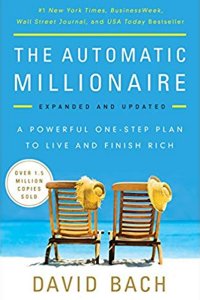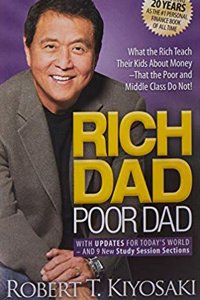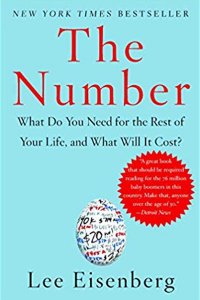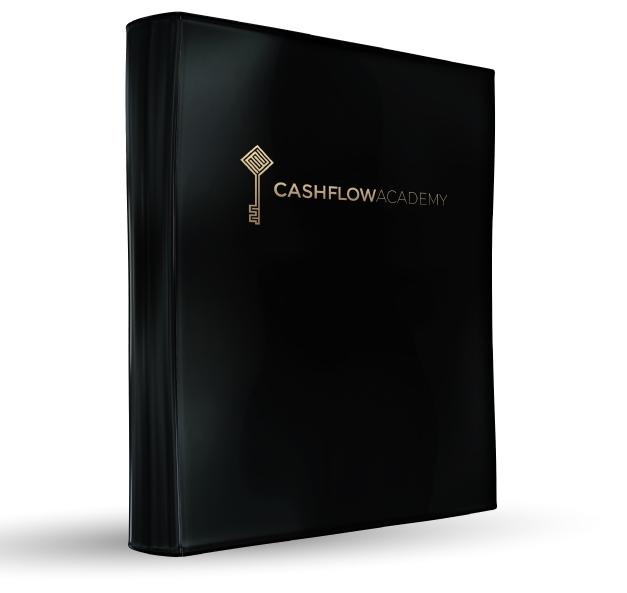
If you’re going to invest in something, invest in real estate. A manufacturing engineer and a real estate investor, Kyle Freitas talks with Athena Paquette Cormier about how he got into the real estate industry years ago and some of the properties he invested in throughout the years. Kyle dives into finding a mentor and its importance with regards to starting from scratch to reach your goals. Get to know Kyle’s ten-year plan that may be applicable to your future plans as well.
—
Listen to the podcast here:
Success In The South Bay: Real Estate Investing With Kyle Freitas
I’m here with Kyle Freitas, a real estate investor who’s here to share his story about the beginnings of real estate investing for him and where he’s at. Welcome, Kyle.
Funny you say real estate investor for me.
That’s what you are. Welcome, real estate investor Kyle. You’ll tell us more about the other parts of your life. We do this investors talk because we want to hear about real success by real people here in the South Bay and around the world eventually, but for now around the South Bay. We’re here to share the story of how you started in real estate and where you’re at. Why don’t you start by telling us where you grew up? Do you have any siblings, your family story?
I lived in Gardena my whole childhood. I went to Torrance schools, specifically North Torrance School, graduated from North High. I’m the youngest of three boys. My dad’s from Hawaii. My mom’s from Japan.
You’re single or you’re married?
I am happily married.
How long have you been married?
I got married back in 2015, living together since 2012.
It was going well and you decided to get married. What’s your educational background? Did you go to college or tech school? Do you have a Master’s?
I did the whole junior college then transferred to Cal State. I went to El Camino first and transferred to Cal State Dominguez Hills. I majored in Computer Information Systems as a Business Administration major. After I graduated, I traveled for a couple of months and spent all my savings those couple of months. Fortunately, during college I had a part-time job fixing computers and one of my clients said, “I work at this aerospace company. You’d be good at this job. Why don’t you come over?” I was in Italy sending him my resume.
What profession are you in? Is that still the job you have?
I got promoted. I am a manufacturing engineer so it’s still Aerospace. How I became a manufacturing engineer, I don’t know.

How long have you been in that profession or that job?
I’ve been working at this company since 2009.
It’s been a while.
I’m pretty settled in.
That’s nice when you start getting used to it. It’s not all new all the time.
You get a lot of new tasks. You get used to that.
When was your first exposure to real estate? I call it the inkling or the spark, when was the first time, let’s say, that you were aware of real estate?
My dad, when we were young, owned a couple of Section 8 in San Pedro and took us a couple of times. We don’t understand but he always told us all and he still tells us to this day, “You need to invest in real estate. You need to invest.” Things are different now. The amount of information he had, nothing compared to what we can pull now. He had that property in San Pedro and then he sold that and ended up buying in Florida, North Carolina and Arkansas. It was pre-internet so it’s not easy at all
Your first exposure was your dad’s already in it.
Seeing what he had to deal with was my first exposure. If I remember correctly, when Christine and I started dating, around that time we talked about future plans and whatnot and I was like, “We’re not getting a dream home right away. We’re going to get an investment property.” It wasn’t something that just happened. It was like, “This is what we should do.”
It was already in you. When you came to that point, you were like, “It’s time.” Like that?
Yes. I was like, “Let’s start looking.”
No big a-ha moment. It was in you that that was going to be part of your process.
I didn’t have any starting point. You read a couple of books and you’re like, “Whatever, but I still need money.”
What books did you read? Do you remember what they were called?
I read the Automatic Millionaire.
That’s a good one.
Rich Dad Poor Dad, anything on retirement I was reading on.
That’s interesting, not so much investing but retirement. Get your future together. Did you go to a class? You came to my class at Torrance Unified.
I was reading these books and I didn’t know where to start. My same client who I had built a computer and got me the job, who was also my boss, because we talked outside of work too and was like, “Come with me in this class.” It was your class. That’s probably my best connection so far in my short career is my friend because he opened the world for me.
He didn’t find you Christina too, did he?
He didn’t.
I had to ask. You came to the class at Torrance Unified, which is a whirlwind of information in one night.

All this information and you show all your success stories and you’re like, “That’s cool, but how do I get there?” I did your consultation. I’m in touch with Michelle, who’s still our realtor. From there, we started looking at properties.
My coaching to people and it was to you too is start with units and then later buy your dream home but first, if you have no other property, start by buying some kind of unit, plex type of duplex, triplex, fourplex. Buy a plex, live in it and then move and start getting towards your dream home or single-family home. That’s what you did. What was your first property?
We were renting in Gardena and paying about $1,200, $1,250 a month. In Lawndale, which is maybe 10 minutes away and even closer to where we work, we found two on a lot. We looked at it. It was in our price range. We looked at it and said, “Let’s do it.” That was early 2014. We had been looking for probably 1.5 years.
You bought a duplex in Lawndale and you moved into one side.
We rent and we said, “This front unit is bigger, we can probably get more rent for it and it’s in much better shape. We’ll live in the back unit.” Little did we know when we were going to move into the back unit, it was in livable conditions but not to our standards. We closed in May. We decided we were going to do the property management for the first year.
There was a tenant there already.
There was a tenant, but they moved out. They moved out because they put a bid on the house. They were renting and they moved. We were hoping to keep them. We found ourselves a situation where we have to find a tenant and we’ve never done it before. Coincidentally, a friend of a friend was looking for a place to live. We knew his work background already. We knew everything. We said, “Move in.” He moved in. The day we moved into our property, we started throwing our stuff in and we said, “We can’t live here yet.” Instead, what happened is I moved back in with my parents, Christine moved in with her parents. For the whole summer, my dad and I remodeled. We had this unexpected cost, but we weren’t paying. We had a tenant so they were covering most of our mortgage. It didn’t hurt at all. It wasn’t until the end of summer that we finally were able to move in and settle into our place.
Do you remember how much you paid for the property?
$482,000.
Do you remember how much down payment or how much money you had to put down? How much did you put to buy the property?
We did FHA, it’s 5%.
That was about $20,000 that you guys put into it. How much was the rent that that tenant paid you right in the beginning?
He was paying us $1,500 a month.
What’s the market rent that you’re getting 3.5 years later?
What we learned was doing your own property management you need to know the market. We thought we knew it. Our tenant moved out and we decided, “We’re not going to do the property manager thing. Let’s get a professional to do it. We interviewed using your questions. Now we’re getting $2,100.
This is important for people to know. You bought the property with FHA financing at a great interest rate but you were paying PMI. Maybe two years later you came in to refinance, a lot of equity so you refinanced. How much did the payment drop when we refinanced you, $300, $400, something like that?
It was closer to $500.
[bctt tweet=”Your knowledge counts for something.” via=”no”]
It was a lot of savings. The rent payment that you’re collecting from the other guys is $2,100. How much are your mortgage payment and taxes and insurance and all that stuff together?
After everything, it’s about under $2,400.
Are you short $300 a month?
We paid 6% to our property manager.
One day, you may move out of this property. How much do you think you could get in rent from the unit you’re in?
We’re looking at $1,600 to $1,700.
Let’s say you move out next year sometime to make this easy. If you owned the property since May of 2014, four years later you’ll be collecting maybe $1,200 a month after all the expenses. That’s $14,000 a year and you only put $20,000 into it. That’s amazing. Kudos to you, that’s good numbers. I like that. You took step one of my plan. You bought other real estate since then. Tell me more. What else did you do? What else did you buy?
Twenty percent down in California is a lot of money. When you look at the South Bay Area, 20% down is the whole cost of a house in other states. We invested in Corpus Christi, Texas.
That seems random. How did you pick Corpus Christi?
Christina and I were looking around and she had gone to a couple of seminars and to an investor who would pay cash for his properties in Corpus Christi. He’d get it all rented out and then he’d sell it to investors in Japan. He said, “Let’s look at Corpus Christi. What do they have?” They have a population of over 300,000. They have a lot of energy companies there because they have the oil rigs right on the bay. Texas A&M is expanding its campus there. They have a naval air station there.
You looked at the factors. In the class I said, “Make sure there are at least 100,000 people, at least three industries.” When you’re going outside your comfort zone, this city met those parameters?
It met those parameters and best of all they are the home of Whataburger, if you’re a fan of. They’re in Texas.

I’m not going to say that’s a reason enough to buy in Corpus Christi, but its close. Were you looking for plexes? Were you looking for an apartment building? What type of investment were you looking for?
In our mind, we’re like, “We got to get a multi-family home. We got to get a plex.” We were looking at it and we had talked to a couple of real estate agents and we interviewed a couple of property managers and the property manager we ended up going with ended up being a real estate agent. He goes, “There’s not a big supply of units in Corpus Christi. You could get better rent with single-family homes.” When we looked at the cost of a duplex, per unit is not that much less than buying one single.
That’s unusual.
We’re like, “Okay.” You have to be open to different units. We started getting listings for single-family homes and this one came up. It was a foreclosure and it was also remodeled. We’re like, “That’s the one.”
Had you been out there, Kyle? Did you fly out, drive around, make a scouting trip before you did this? Was it all remote by email or maybe pictures, videos? How did you do this with the distance?
We did it all online.
Some people are worried about that like, “I have to see the property.” Did you have that concern or no?
Not at all because with the number of pictures you see of the property and our property manager, he went in and he took a video of the property to give us a walkthrough and then your home inspections. That tells you more than what most people starting out in real estate will be able to see. There are a lot of things we don’t notice. I remember when we did the inspection on the property here in Lawndale, I was there with the inspector and I was like, “I don’t know what I’m looking at, but I trust you.” I’m like, “Yeah, sure.”
To back up a little bit, when was your first Corpus Christi purchase?
January of 2017.
Time flies. I thought it was years ago. You weren’t buying property and getting married. What’s the price point of that? You were saying that the plexes, if you even found them, they were multiples of the single-family home anyway. What’s the price point of the house versus the plexes out there?
The duplex was going for about $220,000, $230,000. That was a two-bed, one bath. The house we end up getting was a five-bed, three baths and we closed that at $125,000.
[bctt tweet=”Spread your investments out, diversify; that way, you also spread yourself from the different natural disasters that happen.” via=”no”]
That’s good. It’s a neighborhood where people want to be in single-family homes, not duplexes.
The whole neighborhood is all single-family homes. It’s a cool neighborhood with a park down the street.
What are the gross rents that you’re collecting on that?
We’re collecting $1,400.
Did you put 20% down on that one then?
Twenty percent down and we did a fifteen-year loan.
Why did you pick a fifteen-year loan instead of a 30-year loan?
We were debating about it. This first property, we’re hoping to get it paid off sooner than later and then the cashflow, after we pay off that, will end up paying for all our other properties. There’s a plan there.
It’s a strategy there. Are you negative on the property? Is the cashflow breakeven or a little negative? What’s the situation there?
They’re positive.
If you’re positive and you’re paying it off in half the time, that’s awesome.

We could have a lot more cashflow. We got a lot more room to play with the rent.
What does the manager charge out there? Every part of the country, property managers charge different level pricing. What do you payout there?
Every property manager we interviewed, they all take 10%.
That’s standard. Florida is 10%, too. Do they charge for filling vacancies?
They do.
Do renters come from realtors or from advertising?
It’s advertising. They put a sign-out and they advertise online and get all the calls.
Did you buy any more since then?
We closed another one not too from that property, maybe within a mile of it. This time, since we had spent a lot of our money on that property and ours here, we had a couple of partners that we teamed up with.
The partners put in the money or did you go 50/50? What split did you do?
We have two partners and they want to get into the real estate game too. We’ve known them. One of them owns his business and the other looks at investments a lot and helps me close. I’m thinking a lot of people coming up and saying, “When you invest, I’ll be willing to go in with you.”
That does start happening. When you’re successful, people want to give you the money.
“Here’s the money, go do it for me.” We closed our first property in Texas, then we decided, “We’re going to go.”
A field trip to see what you bought.
To meet our property manager in person. We told them we’re like, “If you guys are truly interested, why don’t you guys come with us? You guys pay for your own ticket.” They’re like, “We’ll do it.” Most people, when you tell them, “You have to put up money for something,” especially when it’s a few hundred dollars. It’s not that much money, most people agree right away. They’re like, “Let’s do this.”
That gave you confidence that they would be good partners with you, if they’re willing to join the investigation and pay for it.
Most of them are like, “Why don’t you do it for us?” When we went, we decided, “We’ll look at properties as well.” One day, we looked at probably a dozen properties. We got back to our motel and Christine and me, we went back to our room. We crashed, we went straight to bed. We called them, “We’ll see you guys in a couple of hours for dinner.” We get up, we knocked on their door and they’re like, “We’ve been running numbers for the past couple of hours.” We’re like, “That’s fantastic. I’m hungry though.”
When we went to Texas with a bunch of people, right there at the dinner table in the barbecue place, we had all the print outs and all the notes and we had it spread all over the table. The waiter was like, “Could you move your stuff so I could put your plate?” We were so into it. My friend, Renee, me, my friend Alex, we all went to Dallas Fort Worth. I know what you mean. People get excited and they’re crunching numbers and they can’t believe it.
They were crunching the numbers, they’re excited. Before we left, we signed the contract to be an escrow on the property. That one, unfortunately, didn’t work out. We kept looking and we found the one we eventually closed on. We started escrow in August.
When did you go out again? When did you take this trip?
[bctt tweet=”Just take those steps one at a time, and suddenly you’ll look back and you’re like, ‘Wow.'” via=”no”]
This trip was in January. We were in escrow and then we pulled. We kept looking. We found a couple of properties, we pulled an escrow one more time in another property because this property I’ve been looking at throughout the summer had gone off-market and I was like, “We missed it.” We went on escrow on this property and then I was like, “This property came back up.” We said, “Let’s pull out of that property.” This person on escrow went in on this one.
Why did you pull out of the first, whatever property that was? What was the reason that you decided to cancel that one?
The property we pulled out, it was another foreclosure through HUD and there were many limitations that you can do HUD. They wouldn’t allow us to do a remodel. The person who got foreclosed on did damage to the property. It was a great deal and it had a great price point, but I was like, “You can’t do this.” He had taken out the HVAC system and HUD is like, “We can’t loan to you unless it has an HVAC system.” We’re like, “This is a HUD home. Most people are going to get a loan for this.” Things didn’t make sense.
HUD doesn’t want you fixing the property before you own it. You’re not supposed to go in and do stuff to it. That’s a good example of a time where you have to line up some investors to do cash and then refinance and do the work you need to do and so on so forth, but you backed out.
We backed out. The next one, it was a nice house right on the coast. It needed a little bit of work, a little bit older. It would have been a good investment even with the amount of money we would have had to put in, but then when this house came back on the market it was a turnkey property and it was going for about the same price.
Decision made, done. When you say on the coast, did it have a waterfront view?
It was a block away from the bay.
Still not worth fixing it up, you wanted the turnkey property.
They want the renter in the end. If I can put in less money, I will.
The investors went in on this one with you. Both of them did or just one?
Both of them went with us because we came with experience with our two properties.
It’s your deep experience.

Our vast knowledge we carry. They said, “Your knowledge counts for something, so you guys put in less but we’ll call it an equal share.”
A lot of people do that, Kyle. The one that makes the deal usually gets at least 10% if not more.
That was the thing we also liked about this because most people think, “You’re going to spend the same amount of money as us and do all the work and we’ll call it even.”
That’s good. In your partnership, if you don’t mind sharing, do you guys have a formal contract that you wrote? I understand you know these people, but do you have something in writing? If someone wants out, how do you exit? Do you have the deal written down somehow?
We have it notarized. We went through a couple of iterations. There was an agreement with it. It took a few iterations to get everyone on this on the same page.
Did you have an attorney do that or you guys wrote it up?
We wrote it up.
Do you plan to put it in an LLC? Do you plan to invest more with these people? How does that look?
We’re all at the age where we’re looking to get our own personal homes too. One of them is actively looking, we don’t know if he’s going to be in. We didn’t put an LLC yet. If we do more, we will put it in an LLC. Now it’s a partnership.
You’re holding title in your own names. If anything happens to anyone of you guys, the property could be at risk, so you might want to do something to protect yourself. You have the duplex and a couple of properties in Texas, are you going to keep investing in Texas? Are you looking for other states to invest in? Are you looking to build more partnerships? What’s your long-term goal?
Christine and I have a ten-year plan. We like to have ten properties within ten years. That’ll be a mix of partnerships and some that are solely ours and one of those properties will be our own home. That plan is written down on two pieces of paper.
It’s simple, it’s handwritten.
Every column is a year and the things we expect for that year.
This is when two analytical people get together, it works.
It’s a ten-year plan. Year one starts the following year. There are different things on this plan, getting a new car for Christine and in a couple of years getting our permanent home, kids.
Do you also have a cashflow? You know that book I recommend, The Number? Do you have your number? Do you have a cashflow number that says, “Kyle and Christine can be out of the rat race at X amount of dollars.” Do you have that dollar figure?
At the end of year ten, we have a $4,500 monthly cashflow and that will cover our basic expenses. That’s our cashflow, my feeling is that’s $4,500 for Christine to retire.
Go and get out of the rat race. She’s not going to sit in a rocking chair. It’s Financial Freedom Day.
She gets to retire first then me. Hopefully that happens.
That’s the correct order by the way, Kyle. In case you were wondering, it is the correct order.
I had questions about that.
I know you do. You have a number in mind. Are you going to keep investing in Texas and here or are you open to other things? What are your thoughts on that?
We might do one more in Texas or in Corpus Christi. My feeling is I want to go to a different city and it doesn’t have to be Texas. It can be wherever in the US. You spread your investments out and that way you also spread yourselves from the different natural disasters that happen because of the California earthquake and fires. As we saw Corpus Christi was missed. They got hit by Hurricane Harvey but there was no real damage to Corpus Christi. Fortunately, they have good drainage.

It’s amazing because they’re by the water like New Orleans.
Port Aransas is right across from them and they got hit directly where Corpus Christi was maybe 30 miles away, but they were still in the red zone. Spread yourselves out of the natural disasters.
Not only climate, I guess you’d call it, but there’s a culture in Texas. There’s a culture in the Midwest. The coastlines are different, tenants are a different, lifestyle. That’s why I teach to diversify like you would with a mutual fund. One hundred percent of your 401(k) is not going to have Coca Cola stock. You’re going to diversify into different industries. That’s good. What else do I have? I asked if you have it written, you definitely did. Don’t you have any idea where that next place will be where you invest?
Not yet. We’re talking about it. In fact, I got a text message from our partner like, “When is our next one?”
People get excited. Are your partners the same age as you or are they older, younger? How old are they?
We’re all about the same age.
When I was younger I thought, “I don’t know if Social Security is going to be there. I don’t want to wait until I’m 65 to retire.” I was self-employed, I had no 401(k). You think about like, “Who’s going to take care of me 30 years or 40 years from now?”
The big thing for me was when I started working full-time. It was a year or two after they stopped giving pensions. A lot of my co-workers talk about, “My pension is paid. This is going to save me for retirement.” I’m like, “I don’t even have that safety blanket.”
What if the stock market goes down when you need the money? You can’t have it all in stocks. This is your plan for retirement. When you have children, I teach this in the class but it’s a great way to pay for school. You buy a little condo somewhere or a little house and by the time your child is eighteen years old, ready for college, it’s almost paid off if you think of it that way. Property number one is for kid number one. You can set up cashflow now for when you need it for schooling.
In fact, one of my mentors, his son is thinking about going to med school and he’s like, “Why don’t I get a property out there and live in one of the units and then we’ll rent out the rest.”
Now that you said that, how did you find your mentor? You found me because Fred dragged you to the class. He forced you to. How did you find this other mentor?
Fred introduced me. He was like, “Let’s go work out together. I go to work out with a friend.” I’m a better friend with my mentor than he is with him.
That’s funny though. Are you sure he didn’t introduce you to Christine?
He didn’t. Christine and I went to high school together.
Fred’s a matchmaker here. Do you think you ever would mentor other people? You are doing that, but do you think you would ever mentor other people?
Yes, sure.
It’s fun.
I don’t even know why real estate. I have friends, they like to invest in the stock market or Bitcoin. They talk about venture capitalism and start their own businesses and they get excited. Real estate is that thing for me.
It is exciting and I could see you putting deals together more and more. Your ten-property plan, you’ll probably blow through that number sooner or later because it’s fun to put the deals together. Is there anything else that you want to talk about? Are you reading any books?
Not at the moment. I go through these phases where I’ll binge read and then I’ll go through long phases of not reading. This whole interview is surreal to me. I don’t know if you remember, when you had us introduce ourselves in the class I was like, “I don’t know what I’m doing here.”
You were the guy who was forced there.
You see yourself owning multiple units, multiple properties, it’s farfetched especially at my age. A lot of our friends have that nice home and we have this dinky little two-bed and one-bath rental unit that we live in. It’s surreal. A lot of my friends have their homes that they’re going to live next 10, 20, 30 years in, but we have three houses.
Do you remember in the class I said, “Don’t strap yourself down with a big debt before you build some assets because otherwise you’re living for that one property instead of the property feeding you.” Many people do that and then they’re like, “I never have enough money to invest,” which is probably true. You buy a house and you start having kids. You’re going on vacation. Kids have sports. If you don’t do it in that order of buying a plex of some kind and maybe a couple of them and then the house of your dreams or whatever, you’ll never be able to turn that around.
From when I took that first class, I could never imagine us being at this point. Everything seems far away.
It does seem surreal. When you’re sitting in the class, you’re like, “How could I do this?”
You take those steps one at a time and then suddenly you look back and you’re like, “I’ve come far.”
I always say, “Money follows money.” Once you start getting that cashflow flowing, then it starts happening more and more. As your friends see you investing, see you successful, the money shows up.
We weren’t expecting it.
Good for you.
That was supposed to have been the following year.
Do you put that plan in pencil or pen? You can erase that.
This is a pen. There are some white on it though.
I’m sure there is. You’ll keep changing it and moving it up because opportunities will come.
Christina and I, we both have our own little gold notebook journal. It’s not at the beginning of the year, it’s not a New Year’s resolution, throughout the year we’re updating it. In fact, she likes to keep a list of books that she’s read throughout the year and progress.
We’re going to have to have her on next. Do you guys share your journals or share your goals, talk about it or you’ve got yours and she’s got hers?
We talk about it. What we write in there is personal, but we’re open already. We already know where we want to go. We’re on the same track.
It sounds like you’re an awesome team. I’m looking to see if I have any questions. It doesn’t look like you have any questions from anybody. Is there anything else you wanted to talk about as far as real estate goes though?
Don’t be afraid to look out of state, especially with the internet.
People are afraid.
Once you get the hang of things on what you’re looking for, do your due diligence on a city in 10, 15 minutes from what you see online.
How did you find your realtor? That part of due diligence is someone there in that city who can tell you if it’s good or bad.
We started out with, first, using that thing on Zillow where this is all recommended. We started with that. We also did an internet search of realtors in the area. Michelle, our realtor, reached out to a couple of her clients who have moved over there, also in contact with a couple of other realtors. We were able to interview quite a few people. The one we got with Zillow was not a real investment realtor. We had to drop her quick.
That’s a good point. You could see the difference between someone who wants to sell people homes to live in versus someone who’s got an investor mindset.
There’s such a clear difference between them. Someone who sells homes for people to live in, they felt the dream, “This is what your home will look like. This is your neighborhood.” The investment side, they look more at the numbers and they think, “This house will draw on a lot of renters.” They start talking numbers.
You can tell the difference. I remember you said you would use my 31 Questions to Ask a Property Manager. How was that helpful in finding the property manager? Getting rid of people?
An example is, both times when we interviewed in California and in Texas, the ones that we didn’t like at all would either not give us the time to even answer these questions because it’s not that hard. They’re straightforward and simple. They tell us, “We can do it. Look at our website and your answer would be there.” The ones that would talk to us, we wouldn’t even get to ask the questions, they would answer by talking to us.
By explaining their business, they were answering the questions that you would have asked.
You go through the whole list and then suddenly you look at that list and you’re like, “You answered everything and more.”
Your realtor is a property manager. That worked out well. People do have fears about investing out of state. What do you think the key is to be comfortable with investing out of state? The price points are lower. Ohio, it’s $50,000 for a house. With your down payment you could buy two houses in Ohio, the down payment that would take here in California. How can people get beyond that fear? How can they work towards getting over that fear?
The things that helped us was our property manager and realtor, he was familiar with the areas. From talking to him, he confirmed a lot of our research that we looked up to. He knows all the ins and outs, so he goes into even more detail. That helped us get comfortable. Also, having known that there are other investors investing in this area because Christina got to that seminar. Build confidence.
She stayed in touch with those people as you guys were going through this process so you could check things out with the other investors as well. Did you drive by those guys’ properties? Did you go see their properties?
We did.
I’d be curious. What did they buy? What do we buy?
The one that sparked our attention, we went and drove by it and it was ugly.
You guys don’t like ugly properties.
We try to get somewhere in the middle. These are out of the spectrum. These were towards the bottom.
How much is the price point for the ugly house?
That was $220,000. There might have been one for $190,000. The rents were lower, so it didn’t make sense.
In that neighborhood or in that region, do they have apartment buildings? Do they have mobile home parks? What’s the makeup or is it all single-family residences? Is it by the water?
The majority are single-family homes. There are sections of multi-unit properties, some duplexes but those are relatively small compared to the amount of single-family homes.
I’m reading through the questions to make sure. Ruby Thorton, which is Pamela Thornton says, “Money follows money and getting the figure to get out of the rat race.” She congratulates you for figuring that out. Mr. Hardy says, “Go, Kyle.” Everyone’s encouraging you.
There was one question if we intend to visit the properties annually? We were about to go to see our second property, but it rented out already. We’re like, “We don’t want to disturb tenants.” We may not go annually but we will probably make a visit every few years.
It’s probably good to see what you bought eventually. I see the question you were talking about. I got to get better at reading the question. I want to thank you, Kyle, for sharing your experience. People can see that you’re an open book. I appreciate that because it encourages people to take the next step in their investing.
Thank you for having me. Thank you for being such a great mentor to me.
You’re welcome. This is your first, you were saying?
This is my first interview about real estate ever.
You’re on your way and you’re going to be an awesome mentor. Thank you for sharing your experience and yourself. I can’t wait to hear what you buy next.
Thank you.
You’re welcome. If you want to take your next step, Kyle did this, which was fun and this is one of my favorite parts, believe it or not, about real estate investing is the due diligence. Kyle came in and practiced due diligence and it’s good to do. If someone’s buying a property, it’s good to have a sanity check on the numbers. The numbers, how to do the due diligence, there’s the property itself, the neighborhood, the numbers themselves. How do you come up with the numbers especially when you’re doing it out of state? My invitation to you is to come on in and let’s practice some due diligence together. It’ll help you with your whole career in investing.
That will definitely help.
It was fun, Kyle. Come on in to do a review of due diligence with me. You can call me directly at (310) 218-6855. My name is Athena Paquette and I look forward to seeing you again at Investors Corner and Investors Talk. Thanks, Kyle.

